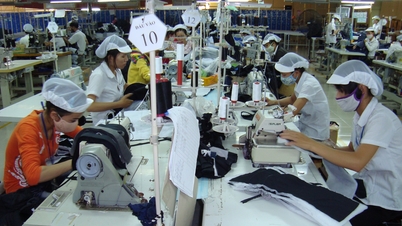- Teach children to keep their word
- Teaching children how to behave properly on social networks
- Teach children how to behave when visiting other people's homes
- Career guidance for children: Parents should teach their children to decide their own future.
If you do this again, I will beat you.
This seems to be a common saying of many fathers and mothers. When a child does something that you think is wrong, to prevent that action from continuing, the father/mother often gives an ultimatum: “If you continue to… then I will beat you…”. We mistakenly think that this ultimatum is very powerful and will be effective, but children often intentionally do the opposite of what their parents want to show that they are grown up and have their own opinions.
Usually, the more things are prevented, the more children want to do them: If parents do not let their children play soccer at noon, they will run away with their friends. If parents do not let their children eat dirty skewers at the school gate, they will be more determined to skip breakfast to save money to eat dirty skewers... Parents' threats only prove that you are helpless because you cannot control your children. Instead of threatening, parents should patiently explain to their children why they should not do this or that. If you have explained and the children do not listen, then give them punishments from light to heavy, instead of threatening or hitting them.
What do you know?
In family debates, when children participate in contributing their opinions, some parents ignore their children's opinions "What do you know?" If children are repeatedly ignored and denied their role, they will gradually stop listening to you and give their own opinions. Thus, you unintentionally make your child become a passive child, afraid to express their opinions, have low self-esteem, and live without their own opinions. Children may not know as much as their parents, but that does not mean they do not know anything. Whether your child's opinions are right or wrong, parents should listen and discuss them with their children. If your opinions and your child's are not the same, do not rush to force your child to listen, give them time to learn and voluntarily comply.

Many children feel seriously hurt when their parents scold or criticize them. Illustration photo
You are so talkative.
Children are curious, love to explore and learn, and sometimes their questions make parents scratch their heads because they don't know how to answer them properly. In order not to be bothered by their children, many parents casually label their children as talkative or nosy. Being refused to answer their questions and being labeled as nosy will make children afraid to ask questions, afraid to express their personal opinions and feelings. An active, energetic child may become withdrawn, quiet, and afraid to communicate with others.
When your child asks you a series of questions, calmly answer them one by one. If you don’t know anything, look up information and answer your child later. There’s nothing to be ashamed of because you’re not a “know-it-all” dictionary. If your child is of school age, you can encourage them to read books, newspapers, or look up information on the Internet to find the answer.
I can't do anything
Being looked down upon by parents will hurt a child's self-esteem, making them become more introverted and withdrawn.
Some children even have negative thoughts when their parents mock them for not being able to do anything. If even their parents do not believe that their children can do it, then who else out there will believe in them?! Being treated as useless by their parents will gradually make children believe that what their parents say is true, that they are worthless. So, with just one sentence, parents have ruined their children's bright future.
If your child fails or does something badly, encourage them to try better next time. Never tell them they are useless or can't do anything.
You have to do this!
While some children are underestimated by their parents, some children are overestimated by their parents, always thinking that their children must be able to do this. When parents place too many expectations on their children, children will feel extremely pressured, always having to try their best to please their parents. The invisible pressure that parents impose on their children will make them live in constant anxiety and fear, afraid that one day they will not be able to do what their parents want, and that their parents will be sad or disappointed.

Love your children with both words and actions. Illustration photo (HuffPost Life)
As parents, everyone wants their children to live well and be successful in life, but you should not put the burden of achievement or have expectations that are beyond their capabilities. Instead of saying "You must do this!", say "You did well!", when hearing this, children will feel that they are recognized by their parents and will try to do better next time.
Parents have sacrificed for their children
This is a common saying of some fathers and mothers who suffer from “complaint” disease. Children do not ask to be born into this world, having children is the decision of the parents. Taking care of andeducating a child has never been easy for anyone, however, you cannot just complain about the hardships of raising a child, saying that for the sake of your child, you have had to sacrifice your youth, sacrifice job opportunities, sacrifice habits and hobbies…
The above statement will make many children think that they are a burden to their parents, leading to negative and even distorted thoughts. Children are the happiness of every family and caring for and raising children is the right and responsibility of parents.
Source link




![[Photo] Prime Minister Pham Minh Chinh inspects the progress of the National Exhibition and Fair Center project](https://vphoto.vietnam.vn/thumb/1200x675/vietnam/resource/IMAGE/2025/5/19/35189ac8807140d897ad2b7d2583fbae)


























































































![[VIDEO] - Enhancing the value of Quang Nam OCOP products through trade connections](https://vphoto.vietnam.vn/thumb/402x226/vietnam/resource/IMAGE/2025/5/17/5be5b5fff1f14914986fad159097a677)







Comment (0)